Dental Implant in Dominican Republic
Search and Compare the Best Clinics and Doctors at the Lowest Prices for Dental Implant in Dominican Republic
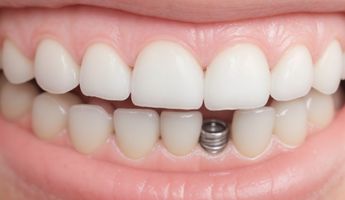
Find the best clinics for Dental Implant in Dominican Republic
With Medijump you can browse 7 facilities offering Dental Implant procedures in Dominican Republic. The cheapest price available is $100 in Santo Domingo. And for the cheapest price globally, prices start from $1 in Vietnam.
Dental Implant in Santo Domingo
Price: $ 100
Dental Implant in Santiago de los Caballeros
Price: $ 500
Vietnam offers the best prices Worldwide
Price: $ 1
Dr. Mabel Bonilla, located in Calle Guayubin Olivo, Santo Domingo, Dominican Republic offers patients Dental Implant procedures among its total of 5 available procedures, across 1 different specialties. The cost of a Dental Implant procedure ranges from $500 to $550, whilst the national average price is approximately $367. All procedures and treatments are undertaken by just a small team of specialists, with 2 in total at the Dental, and they are accredited by American Dental Association
Oralis Odontologia Especializada, located in Las Colinas, Santiago de los Caballeros, Dominican Republic offers patients Dental Implant procedures among its total of 4 available procedures, across 2 different specialties. The cost of a Dental Implant procedure ranges from $500 to $1,500, whilst the national average price is approximately $367. All procedures and treatments are undertaken by just a small team of specialists, with 2 in total at the Dental, and they are not accredited by any recognized accreditations institutes
Anatomica Hair Transplantation Clinic, located in Calle Guayubin Olivo, Santo Domingo, Dominican Republic offers patients Dental Implant procedures among its total of 17 available procedures, across 3 different specialties. The cost of a Dental Implant procedure ranges from $100 to $49,000, whilst the national average price is approximately $367. There are many specialists available at the Clinic, with 7 in total, and they are not accredited by any recognized accreditations institutes
From 2 verified reviews
Joseph Salazar, 04 June 2019
After weighing in all things that need to be considered and the different options available for dental tourism, and reading a lot of reviews, I decided to go to Santo Domingo, Dominican Republic, to see Dr. Juan Tomas Pena.The Dr. and his team at Denstetica were amazing, knowledgeable, attentive, very welcoming and friendly.The first phase of my treatment involved four implants and the extraction of a molar; after the implants have set, I will go back for phase two, which is to have my crowns done.Dr. Pena, was very thorough during his examination and throughout his work, making sure that I was comfortable and that everything was done to perfection; all in about 4 hours and I didn’t have any swelling!I surely recommend Dr. Pena and his fantastic group at Denstetica!
From 70 verified reviews
Danielle Courteau, 23 November 2019
Highly competent dentists and specialists, efficient staff. Highly recommended.
From 2 verified reviews
Ronald, 03 March 2018
Excellent clarified all my doubts and the very personalized treatment Thanks to Ms. Denisse.
Hispadent - Jose Alonso MD, located in Calle Guayubin Olivo, Santo Domingo, Dominican Republic offers patients Dental Implant procedures among its total of 38 available procedures, across 2 different specialties. Currently, there's no pricing information for Dental Implant procedures at Hispadent - Jose Alonso MD, as all prices are available on request only, whilst the national average price is approximately $367. There are many specialists available at the Dental, with 4 in total, and they have multiple recognized accreditations, including: AAAM - American Academy of Aesthetic MedicineAGD - Academy of General DentistryAACD - American Academy of Cosmetic DentistryAAID - American Academy of Implant DentistryAOD - Asociacion Odontologica Dominicana
- Home
- Dominican Republic
Compare Before & After Photos of _procedure_photos.phpDental Implant

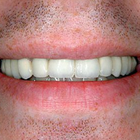
Front view


Front view
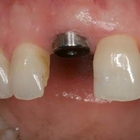
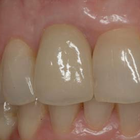
Front view
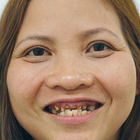

Front view


Front view
WHY US?
At Medijump, we're making medical easy. You can search, compare, discuss, and book your medical all in one place. We open the door to the best medical providers worldwide, saving you time and energy along the way, and it's all for FREE, no hidden fees, and no price markups guaranteed. So what are you waiting for?

Free

Best Price

Widest Selection

Risk-Free
What you need to know about Dental Implant in Dominican Republic

A dental implant is a medical device that provide support to artificial teeth. It's surgically placed into the jaw to act as a replacement for the root of a missing or damaged tooth, which in turn serves to hold a replacement tooth or bridge. It functions and looks much like a real tooth, restoring your ability to chew and improves your overall appearance. Dental implant surgery is considered as a better alternative to dentures or bridgework that does not fit well. It also offers a great option for people when they do not have enough natural teeth roots left to build denture or bridgework replacements.
Since dental implants eventually fuse with your jawbone over the span of several months, it won’t make noise, slip, or cause bone damage the way dentures or bridgework might. Dental implants also enable natural speech, look and feel like your own teeth, make eating easier, and improves your appearance. However, the surgery may involve several stages, and, in some cases, it may require two separate visits to the clinic to complete. Ensure to look for a specialist in a reputable clinic for the best results.
What is the cost of Dental Implant in Dominican Republic?
Price differences abound in Dominican Republic for Dental Implant based on the clinic, the proficiency of the surgeon, and the individual requirements of the patients. It's essential to realize that dental insurance usually doesn't cover the entire bill for this treatment, though it might cover a part. Several dental clinics provide finance schemes or payment alternatives to assist in easing the financial burden. For more precise cost estimates, reach out to your dental service provider or a nearby clinic.
What does a Dental Implant Procedure Involve?
Dental implant surgery generally requires several stages. Each stage may be performed under general or local anesthetic. The first stage is removing the damaged tooth. Then, if your jawbone is too soft or not thick enough, your dentist may perform bone grafting to create a more solid base for the implant. The bone graft may be natural (taken from another part of your body) or synthetic (a bone-substitute material). If you only need minor bone grafting, the implant surgery can be performed on the same day. However, if you need a significant amount of bone graft, the implant surgery may have to be postponed until the transplanted bone grows enough new bone to support the dental implant.
The next stage after the damaged tooth removal and bone graft (if you need one) is placing the dental implant. To do this, your dentist makes an incision to expose the bone and puts the metal implant post deep into the bone. At this stage, you will still have a gap where your tooth is missing. Your dentist will place a temporary denture for appearance. Once the metal implant post is placed, osseointegration begins. This is a process where the jawbone grows into the surface of the implant and can take several months to complete. After osseointegration is complete, your dentist will place the abutment, which is a small connector post that will hold your new tooth. The final stage, after the abutment is placed, is placing the crown, which is the tooth-looking part. You can choose between a removable crown and a fixed crown.
How Long Should I Stay in Dominican Republic for a Dental Implant Procedure?
The length of your stay in Dominican Republic for a Dental Implant depends on numerous considerations like the intricacies of the procedure, the quantity of implants required, and your personal recovery process. Each stage of dental implant surgery is done in separate appointments. After each appointment, you should be able to leave the hospital or clinic right away. However, you should stay in Dominican Republic for at least 2 weeks for completion of the work, the initial recovery time, and follow-up checkups.
What's the Recovery Time for Dental Implant Procedures?
The recuperation duration following a Dental Implant or dental implant operation can widely vary and is shaped by multiple aspects. Initial healing of the tissue might require only a handful of days, but complete osseointegration (the fusion of the implant with the jawbone) generally spans several months. This window could be extended for patients requiring auxiliary procedures such as bone grafts, or those with prevailing health issues that may impede the healing process.
Post-procedure, it's not unusual to experience a degree of discomfort, which could manifest as minor pain, swelling of your gums and face, skin and gum bruising, and slight bleeding. Such symptoms are a standard phase of the recovery process and should alleviate within a fortnight. In this interim, it's advisable to stick to a soft diet to not overload the implant site with undue pressure. Any strenuous physical exertion should be put off to circumvent potential complications.
Maintaining excellent oral hygiene is paramount to facilitate healing and stave off infection. Regular brushing and flossing, being particularly gentle around the surgical area, coupled with rinsing your oral cavity with warm saline water, can contribute to keeping the region hygienic.
What sort of Aftercare is Required for Dental Implant Procedures?
After each stage of surgery, you may have to eat soft foods. Since you may experience swelling, bruising, pain, and minor bleeding, your dentist will prescribe pain medications or antibiotics to help ease your discomfort. During your recovery period, you need to avoid smoking as it can contribute to implant failure and complications.
No special care is required for dental implants. Nonetheless, you need to practice good oral hygiene in order to maintain the implant and your remaining natural teeth. Make sure to brush your teeth twice a day, floss daily, and rinse your mouth with an antiseptic mouthwash. You also need to see your dentist regularly and avoid damaging habits, such as chewing hard items.
What's the Success Rate of Dental Implant Procedures?
The efficacy of Dental Implant, alternatively referred to as dental implants, in Dominican Republic, is typically impressive, boasting effectiveness percentages as high as 98% in some studies. This positions dental implants as one of the most reliable procedures within dental care's realm. Nevertheless, it's worth mentioning that the success rates might fluctuate, influenced by several factors.
The patient's overall health is a key determinant of the thriving outcome of a dental implant procedure. Individuals exhibiting optimal health usually witness higher success rates. Pre-existing health issues like diabetes, osteoporosis, and periodontal ailments can theoretically impact the efficacy of the implant.
Additional contributing factors to the success rate encompass the quality and abundance of the individual's bone structure. Patients boasting plentiful, healthy bone are ordinarily the perfect candidates for dental implants. However, those who have experienced bone loss might need to undergo a bone grafting procedure before the implant procedure. This step can provide a robust base for the implant and enhance the chances of a successful result.
Are there Alternatives to Dental Implant Procedures?
If you are not a candidate for dental implant surgery, or you simply do not want to undergo the procedure, you can opt for the alternatives. The alternatives include:
- Mini dental implants, which is a small type of dental implants. The structure is similar to regular dental implants, but are somewhat smaller in size. Unlike regular dental implants, dentists can often place mini implants only in one visit using local anesthesia. You may also be able to use your new teeth on the same day.
- A same-day implant is essentially similar to traditional dental implants. However, your dentist performs the whole process in just one day, skipping the process of wound healing and osseointegration.
- Implant-supported dentures or All-on-4 is an alternative if you need to fix a complete upper or lower set of teeth. During this procedure, four to six implants are placed into your jawbone as a base to attach and stabilize your denture.
What Should You Expect Before and After the Dental Implant Procedure?
Grasping what lies ahead before and post the Dental Implant can lessen potential worries and guarantee you are fully equipped for the upcoming journey. Prior to the procedure, your dental practitioner will conduct an all-inclusive dental assessment. This check-up may encompass dental X-rays and sophisticated 3D imaging to examine the status of your oral cavity.
The dental professional will also explore your medical history. If you're suffering from specific heart disorders or orthopedic implants, your dental practitioner might suggest antibiotics to avert infection. A personalized treatment blueprint, customized to your circumstances, will be constructed. This strategy takes into account factors like the amount of teeth you need substituted and the state of your jawbone. The procedure is typically carried out under local anesthesia to mitigate any discomfort.
Subsequent to the operation, experiencing slight unease is usual. You might witness inflammation of your face and gums, discoloration of your skin and gums, soreness at the insertion area, and insignificant bleeding. Your dental specialist will recommend medications to soothe these indicators. In case inflation, unease, or any other complications intensify in the days post-operation, it's crucial to reach out to your oral surgeon. Post-operation will require you to consume mushy foods as the operated site recovers. Moreover, you'll be guided to abstain from smoking, as it can hinder recovery and influence the triumph of the dental implant.
Following the positioning of the implant, the healing process, and fusion with the bone (osseointegration) transpire over an extended period. During this interval, maintaining robust oral cleanliness is vital. This involves frequent brushing, the use of dental floss, and cleansing with an antibacterial mouthwash. Periodic dental examinations are obligatory to track progress and confirm the well-being and effectiveness of the implant.
What are Potential Risks of Dental Implant?
Despite Dental Implant boasting remarkable effectiveness, it is, as any surgical operation, not without risks and potential difficulties. The chances of encountering these issues are often minute and irregularities are infrequent, yet it remains critical for patients to comprehend these possibilities before undertaking the procedure.
Complications and side effects may include:
- Implant failure
- Nerve injury
- Infection
- Sinus problems
- Damage to surrounding structures, such as other teeth or blood vessels
How long does a Dental Implant last?
The durability of a Dental Implant is heavily reliant on the individual's oral cleanliness and general wellbeing. Nonetheless, with appropriate upkeep and care, dental implants have the potential to stand the test of time. The titanium pillar inserted into the jawbone during surgery is crafted to be everlasting, while the dental cap fastened to the anchor may necessitate substitution every decade or decade and a half due to normal usage. Yet, with outstanding dental management and habitual screenings, the cap has the potential for lifelong endurance.
Whilst the information presented here has been accurately sourced and verified by a medical professional for its accuracy, it is still advised to consult with your doctor before pursuing a medical treatment at one of the listed medical providers
No Time?
Tell us what you're looking for and we'll reachout to the top clinics all at once
Enquire Now

Popular Procedures in Dominican Republic
Prices Start From $1

Prices Start From $1

Prices Start From $48

Prices Start From $1

Prices Start From $1

Prices Start From $11

Prices Start From $1

Prices Start From $45

Recommended Medical Centers in Dominican Republic for Dental Implant

- Interpreter services
- Translation service
- Religious facilities
- Medical records transfer
- Medical travel insurance
- Health insurance coordination
- TV in the room
- Safe in the room
- Phone in the room
- Private rooms for patients available

- Interpreter services
- Translation service
- Religious facilities
- Medical records transfer
- Medical travel insurance
- Health insurance coordination
- TV in the room
- Safe in the room
- Phone in the room
- Private rooms for patients available

- Interpreter services
- Translation service
- Religious facilities
- Medical records transfer
- Medical travel insurance
- Health insurance coordination
- TV in the room
- Safe in the room
- Phone in the room
- Private rooms for patients available

- Interpreter services
- Translation service
- Religious facilities
- Medical records transfer
- Medical travel insurance
- Health insurance coordination
- TV in the room
- Safe in the room
- Phone in the room
- Private rooms for patients available

- Interpreter services
- Translation service
- Religious facilities
- Medical records transfer
- Medical travel insurance
- Health insurance coordination
- TV in the room
- Safe in the room
- Phone in the room
- Private rooms for patients available

- Interpreter services
- Translation service
- Religious facilities
- Medical records transfer
- Medical travel insurance
- Health insurance coordination
- TV in the room
- Safe in the room
- Phone in the room
- Private rooms for patients available

- Interpreter services
- Translation service
- Religious facilities
- Medical records transfer
- Medical travel insurance
- Health insurance coordination
- TV in the room
- Safe in the room
- Phone in the room
- Private rooms for patients available

- Interpreter services
- Translation service
- Religious facilities
- Medical records transfer
- Medical travel insurance
- Health insurance coordination
- TV in the room
- Safe in the room
- Phone in the room
- Private rooms for patients available
Dental Implant in and around Dominican Republic
About the Dominican Republic
The Dominican Republic can be found on the island of Hispaniola and is a part of the island group, the Great Antilles. The nation has diverse natural environments and land features. Characterized by rugged mountains on one side and the other side consist of low lying valleys and coastal plains. It is the world’s leading producer of professional baseball players. It is also home to the highest mountain, Pico Duarte, and the largest lake, Lago Enriquillo in the Caribbean Region.
In recent times, the Dominican Republic has become popular with medical tourists. Tourists, particularly from the United States, visit the country for Plastic and Reconstructive surgeries, especially for Breast Augmentation procedure. About 25,000 to 30,000 patients visit the Dominican Republic yearly for various medical treatments. The most sought-after services are general, Plastic and cosmetic surgeries, dental procedures, weight-loss, oncology, and orthopedic treatments.
Most medical service providers are situated around the capital city Santa Domingo and Santiago. The medical establishments offer competitive healthcare services with highly-qualified and internationally-trained surgeons. The following clinics can be found in Santa Domingo: Dr. Rafael E. Estevez - Plastic, Reconstructive, and Aesthetic Surgeon, Dr. Gustavo Almanzar Plastic Surgery Clinic, Alba Reyes Skin, and Hair Transplant Institute and Dr. Ivan Strachan Bariatric Clinic.
Popular Parts of Dominican Republic
The Dominican Republic is an unmatched destination with amazing natural sceneries, intriguing history, and diverse culture. It offers ecotourism adventures in splendid national parks, mountain ranges, beaches, and rivers.
Top attractions of the Dominican Republic:
- Santa Domingo – The capital city is where Christopher Columbus first set foot in the Americas. It is home to century-old buildings, most of which function as restaurants, shops, quaint hotels, and museums. Zona Colonial is the historic central area of Santa Domingo. It is the oldest European settlement and a UNESCO World Heritage Site.
- Punta Cana –Is a premier resort destination, bordering the Caribbean Sea and the Atlantic Ocean. It offers about 20 miles of white sandy beaches. The Bavaro Beach area and Punta Cana together form the Coconut Coast, an area of luxurious resorts. It is famous for water activities such as zip-lining, kayaking, windsurfing, and sailing.
- Samara Province –Is a city overlooking the Samana Bay. Its unique feature is the breeding point for thousands of humpback whales during their mating season in winter.
- Parque Nacional Del Este – Meaning the ‘Eastern National Park’, is one of the largest marine parks in the Caribbean. It also has an offshore coral reef system. Divers can watch a multitude of marine life within its waters. It is also home to hundreds of different species of birds, tropical forests and beaches.
- Lago Enriquillo – The massive hypersaline lake lies 140 feet below the sea level. You will see a large population of American crocodiles as well as pink flamingos, and various other bird species and you will even find iguanas at the entrance of the lake.
- El Limon Waterfalls – Being the tallest falls of the country, it is perfect for hiking and horseback riding through the rugged and steep mountain trail. The hike gives you a stunning view of the Caribbean landscape. The crystal-clear natural pool at its foot is a perfect place to cool off and relax.
- Kite Beach, Cabarete –Is a unique beach, about 20 minutes on foot from the main Cabarete Beach. Kiteboarders fill the otherwise quiet beach in the afternoons when the wind picks up.
Jarabacoa, Sosua, La Romana, Las Aguilas, and Puerto Plata & Playa Dorada are several other popular tourist spots in the Dominican Republic.
Weather and Climate in the Dominican Republic
The Dominican Republic has a tropical weather climate, and constant temperature throughout the year, with average yearly temperature, is around 77°F.
The hottest and humid period is from May to October. The mild winter season is from December to March. The period between November and April are the moderate seasons.
Rainfall is seasonal. The eastern and southern coasts experience rains between April and October. The northern coast receives rains throughout the year due to the influence of the north-eastern trade winds. The southern region is prone to hurricanes, with most striking in the months of August and September.
Getting Around in the Dominican Republic
The Dominican Republic offers easy access to the rest of the world with a myriad of flight options from North America and Europe. The main ports of entry into the country by air are the international airports in Santa Domingo, Punta Cana, and Puerto Plata. Santiago and Samana airports are other points of entry.
There are many flights from major cities of Canada and the US. The most frequent flights are from New York, Miami, Toronto, and Montreal. JetBlue, the budget airlines, operates flights from North America to Santo Domingo, Santiago, and Puerto Plata.
The Dominican Republic has a well-developed inter-country transport infrastructure with a large network of roads. It has many types of public transportation for moving around within cities such as buses, the metro, carro publicos, guaguas, and the motoconchos.
Carro Publicos are small car-public taxis and have a specific route displayed on their roof. Guaguas are privately-owned minivans and pick up travelers from any point and drop them off close to their desired location. Motoconchos are private motorcycle taxis that have reasonable fares and are ideal for short journeys.
Tourist Visas in the Dominican Republic
Citizens of countries such as the UK, USA, and Canada, and Schengen countries are not required to have a tourist visa to enter the Dominican Republic, under a bilateral agreement between the countries. However, they do need to:
- Carry a tourist card (Tourist cards allow you to stay for 30 days and allow an extension to stay beyond 30 days).
- Have a valid passport not expiring before six months with at least one blank page
- Carry proof of onward and return journeys and sufficient funds.
Nationals of countries like India, Sri Lanka, China, and Russia need to get a tourist visa to travel to the Dominican Republic. The visas are multiple-entry type and are valid for 60 days.
Additional Information
- The Dominican Peso (RD$) is the official currency of the country. As of April 2019, one US Dollar is worth about 51 RD$. Major tourist areas like Punta Cana accept US Dollars.
- You can find many ATMs in Santa Domingo and other popular tourist cities. Dominican Republic banks are members of the Maestro, Citrus, and PLUS networks. Hence, you can use the affiliate credit and debit cards here.
- Spanish is the official and major language of the country. Dominican Spanish forms its dialect. Very few locals understand and speak English.
- 93% of the population follow Roman Catholicism. However, many Dominicans do not go to church on a regular basis.
- Major holidays of the Dominican Republic are religious. While others are non-religious and national holidays. Other than Christmas and Good Friday, the Day of Our Lady of Altagracia (January 21), Corpus Christi (June 17) and the Feast of Our Lady of Mercy (September 24) are the religious holidays. Juan Pablo Duarte (January 26), Independence Day (February 27), and Dominican Restoration Day (August 16) are the national holidays specific to the country.
Popular Searches
- Plastic Surgery in Thailand
- Dental Implants in Thailand
- Hair Transplant in Thailand
- Breast Augmentation Thailand
- Gastric Sleeve in Thailand
- Gender Reassignment Surgery in Thailand
- Laser Hair Removal in Bangkok
- Botox in Bangkok
- Dermatology in Bangkok
- Breast Augmentation in Bangkok
- Coolsculpting in Bangkok
- Veneers in Turkey
- Hair Transplant in Turkey
- Rhinoplasty in Turkey
- Stem Cell Therapy in Mexico
- Rhinoplasty in Mexico
- Liposuction in Mexico
- Coolsculpting in Tijuana
- Rhinoplasty in Korea
- Scar Removal in Korea
- Gastric Sleeve in Turkey
- Bone Marrow Transplant in India
- Invisalign in Malaysia
- Plastic Surgery in the Dominican Republic
- Tummy Tuck in the Dominican Republic
- Plastic and Cosmetic Surgery in Poland
- Rhinoplasty in Poland
- Hair Implant in Poland
- Dental Implants in Poland
- IVF in Turkey






